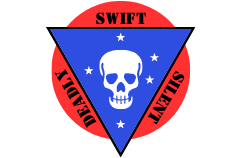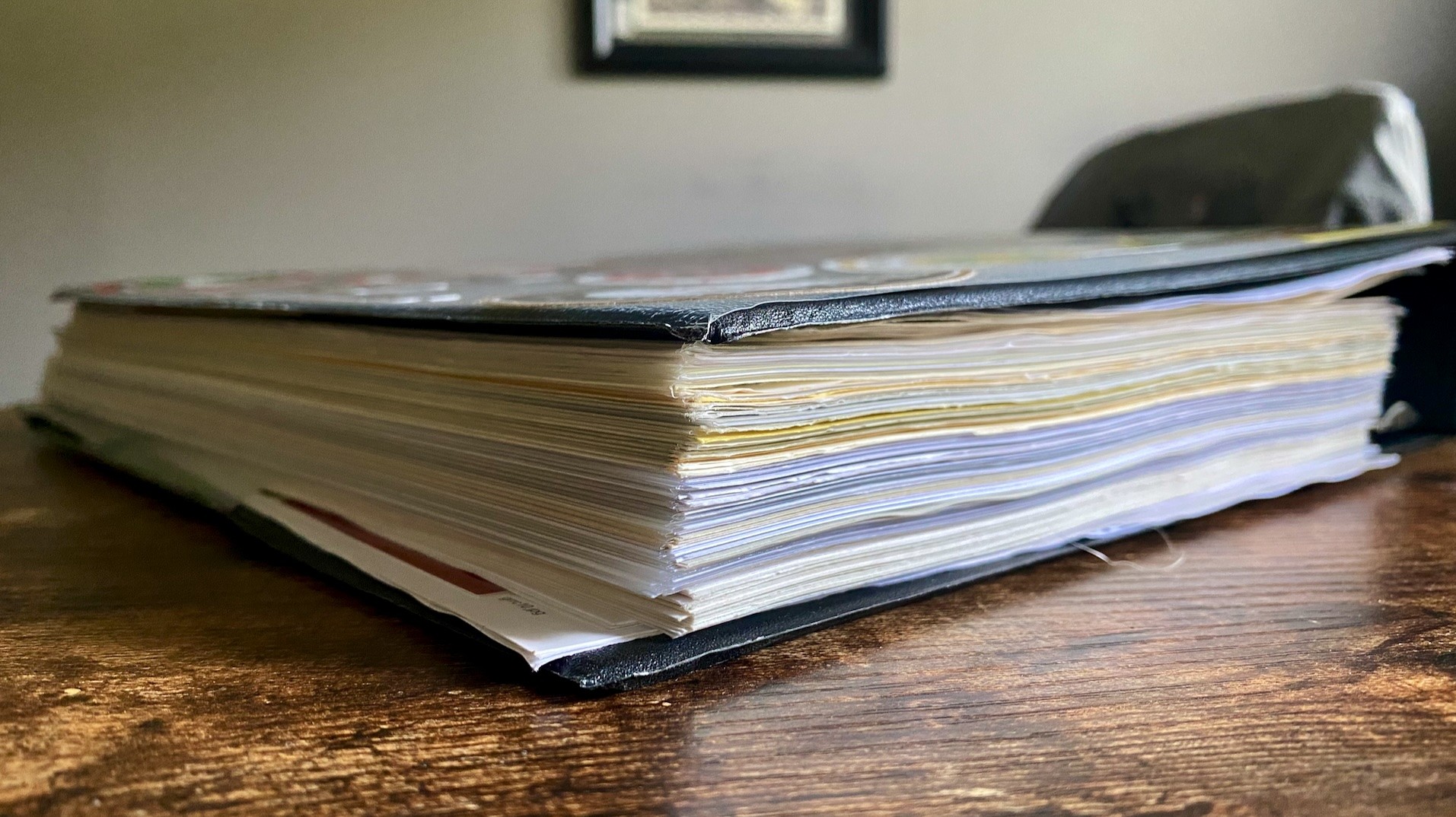I was recently a guest on Matt Robertson’s excellent Everyday Marksman Podcast. The first question Matt asked me hinted at something. He wanted to know how I got into writing about the stuff I write about which amounts to, well, little bit of everything. The answer I wish I had given him? Life is general!
I have been thinking a great deal about the generality of life and how being a generalist is a very strong adaptive trait. This was driven home recently while reading a book called Coyote America. The book provides a brief history of the uniquely North American canid. A theme that occurs repeatedly in the story of the coyote is the resiliency of being a generalist.
The Much Maligned Coyote
Most animals fill a very narrow ecological niche. Wolves, for instance, are apex predators that subsist almost entirely on large, rich sources of protein like deer, elk, and cow. This makes wolves vulnerable in several ways. If the wolves’ food supply is suddenly reduced – because of disease or competition from other apex predators, for instance – the wolves are going to have a hard time. It also makes the wolf easy to hunt, trap, and exterminate. If you know what wolves eat, you can poison or hunt around its food. If you know what wolves eat you can find them by finding their food. Thirdly, wolves have to hunt in packs to take down such large game meaning if you find one wolf, you have probably found several. Obviously this is problematic for wolves, if another species is truly interested in exterminating them.
Coyotes fill a niche, too. They fill a much broader ecological niche between large, apex predators and smaller animals. Fortunately for coyotes, though, their niche is much more malleable, and coyotes are the ultimate omnivore. Not bound to a particular food source coyotes subsist on a varied diet of mostly mice, insects, crickets and grasshoppers, supplemented by snakes, fruit, human food, pet food, and occasionally, pets. Take away mice? Coyotes will simply eat something else. That’s just the tip of the versatility iceberg for the coyote.
If an opportunity to take larger game presents itself, coyotes can and will form into groups. Coyotes can come together and form a pack for short or long terms depending on the opportunities available. If large game gets scarce and it’s once again “every dog for himself” the coyotes revert back to lone individuals or paired-bonded partners. This is called a fission-fusion society and it makes the coyote massively more versatile. It’s a trait that isn’t completely unique to coyotes – we humans share it – but it’s not common among animals.
One other fascinating adaptive trait of the coyote: litter size. The number of pups in coyotes’ litters is largely influenced by external pressure. One function of the coyote’s howl is census-taking. If calls are not returned, or only returned sparsely, hormonal changes occur in the female causing her to have larger litters. This is probably a huge factor explaining why the more coyotes we kill, the more there seem to be.
Coyotes are also incredibly versatile in other ways. Coyotes can live anywhere. In the first half of the 1900s, coyotes were thought of as creatures of the plains and desert – Western animals. As the coyote began to enthusiastically expand its range east through the second half of the 1900s, the song-dog was thought of as a “wild” animal, inhabiting forests, deserts, and other areas not inhabited by humans. Throughout the 2000s the coyote has been accepted as an urbanite, finding itself just at home in downtown Los Angeles as in Yellowstone National Park.
Despite extremely serious, extremely well-funded national-policy, efforts to eradicate the coyote, it thrives. There has probably never been a time it hasn’t. In fact the range of the coyote has expanded drastically since 1900. The coyote’s expansion is so drastic that nearly every American in CONUS is less than a mile away from a coyote at any given time.
Specialization is for…Wolves?
Many of us have adopted the most negative aspect of the wolf: its over-specialization. We lock ourselves – through debt, poor financial management, and poor planning – into very specialized occupations. What happens when that occupation goes away? I bet blacksmiths never imagined blacksmithing would fade away into complete obsolescence. It is unlikely that the auto workers of the 1950s imagined their jobs would one day be taken by robots. One could endlessly list the occupations that were once “essential” that have completely fallen by the wayside – because of technology, reduction in demand, pandemic, or what-have-you.
Many of us also adopt specialized personal practices that make us, if not wolves, wolf-like (in a manner of speaking). During the COVID pandemic I’ve heard from a number of friends and acquaintances who have very restrictive, first-world diets. It occurs to me what a luxury “gluten sensitivity” or being vegan is. I’m all for your choices and I hold nothing absolutely against anyone for being a vegan. Like the wolf you have tied yourself to a very specialized food source that may become unavailable one day. What then? Many of us also overly-specialize in other ways that make us less resilient.

Let’s talk about that. Sometimes I look at guys that can pick nearly any kind of lock and make it look easy, or guys that can shoot amazingly fast and feel a twinge of jealousy. Specialization is tempting. Being an undisputed expert on a topic is very compelling. We all want to be “the best” at something. Staying within a topic you already know everything about is really comfortable and doesn’t challenge you much, but it also comes with some problems.
What did those people do to attain to their level of skill? I can tell you what they did: they wanted it and they spent hours and hours and hours working and honing their craft. The reward: abilities that amaze the rest of us, and I’m not making light. These abilities truly are amazing! I love watching someone perform a craft that they have absolutely mastered. But what is the downside to such mastery?
Mediocrity or Being Good Enough?
I am a guy that adopts interests and goes “all in” on them for several years. Examples include lockpicking, photography, revolvers, and digital security/privacy. I will spend three or four or five years learning everything I can. At first, it’s easy. Nearly everything you learn initially is brand new and novel and interesting. If you truly dedicate yourself your gains can be massive. Even small but focused, serious inputs result in huge gains in knowledge, skill, whatever.
But that quickly starts to diminish. At a certain point you are learning very little that is actually new. Most products, practices, etc. are very minor variations on a theme. You could spend all your time learning these minor differences, making incremental improvements in your skill…but each one takes progressively longer. This is usually the point that I lose most of my interest in a topic. I used to think this was a bad thing. “Why,” I used to wonder, “can’t I stick with anything?”
Then I realized this wasn’t a bad thing at all, and here’s why. If you pursue anything long enough and become good enough, you will reach a point that becoming .05% better will require more effort than achieving all the ability you have achieved to this point. Is it worth it? What is the opportunity cost for that 0.05%? You could become 0.05% better, or you could spend the same amount of time and money reaching the 90% level with another skill.
If mice become scarce, coyotes don’t double or triple or quadruple the inputs of time and energy spent looking for mice. They seek other, easier sources of food and achieve the same gains with similar inputs. They move geographically and adopt new hunting techniques. If I become “good enough” with a subject I’m not going to exponentially increase my time to get a tiny gains – I”m going to invest a little bit to maintain, and refocus the bulk of that time on a new pursuit.
The Bottom Line
And what is the end result? I’ll never shoot as fast as Mike Seeklander. I’ll never pick locks as well as BosnianBill. I’ll never be as good a photographer as Tyler Stableford or as proficient with revolvers as Jerry Miculek. I’ll never be as medically competent as a lifelong practitioner of paramedicine, have the cooking ability of a master chef, or the carpentry skills of a master carpenter. While not “the best” at any of these things I’m very competent at all of them, and I’ll add more as long as health and life permit.
I’ll leave you with one final thought. I don’t go much in for anthropomorphism, but I deeply admire the spirit of the coyote. The coyote is the ultimate survivor, but not because of its brute strength or savagery. Not because its intellect is superior to ours. Not because it is exceptionally good – the undisputed expert – at any one, single thing. The coyote is the ultimate survivor because it is versatile and willing to adapt. The coyote has no qualms about adjusting its strategies and learning new competencies in the face of change. Can you say the same?
Life is general. Embrace the coyote.






2 thoughts on “Life is General. Embrace the Coyote.”
Comments are closed.